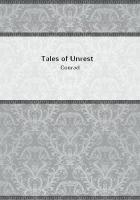THE PASSING OF OWEN
Once she was outside of Owen's house, Noma did not tarry. First she returned to Hokosa's kraal, where she had already learnt from his head wife, Zinti, and others the news of his betrayal of the plot of Hafela, of his conversion to the faith of the Christians, and of the march of the /impi/ to ambush the prince. Here she took a little spear, and rolling up in a skin blanket as much dried meat as she could carry, she slipped unnoticed from the kraal. Her object was to escape from the Great Place, but this she did not try to do by any of the gates, knowing them to be guarded. Some months ago, before she started on her embassy, she had noted a weak spot in the fence, where dogs had torn a hole through which they passed out to hunt at night.
To this spot she made her way under cover of the darkness--for though she still greatly feared to be alone at night, her pressing need conquered her fears--and found that the hole was yet there, for a tall weed growing in its mouth had caused it to be overlooked by those whose duty it was to mend the fence. With her assegai she widened it a little, then drew her lithe shape through it, and lying hidden till the guard had passed, climbed the two stone walls beyond. Once she was free of the town, she set her course by the stars and started forward at a steady run.
"If my strength holds I shall yet be in time to warn him," she muttered to herself. "Ah! friend Hokosa, this new madness of yours has blunted your wits that once were sharp enough. You have set me free, and now you shall learn how I can use my *******. Not for nothing have I been your pupil, Hokosa the fox."
Before the dawn broke Noma was thirty miles from the Great Place, and before the next dawn she was a hundred. At sunset on that second day she stood among mountains. To her right stretched a great defile, a rugged place of rocks and bush, wherein she knew that the regiments of the king were hid in ambush. Perchance she was too late, perchance the /impi/ of Hafela had already passed to its doom in yonder gorge.
Swiftly she ran forward on to the trail which led to the gorge, to find that it had been trodden by many feet and recently. Moving to and fro she searched the spoor with her eyes, then rose with a sigh of joy. It was old, and marked the passage of the great company of women and children and their thousands of cattle which, in execution of the plot, had travelled this path some days before. Either the /impi/ had not yet arrived, or it had gone by some other road. Weary as she was, Noma followed the old spoor backwards. A mile or more away it crossed the crest of a hog-backed mountain, from whose summit she searched the plain beyond, and not in vain, for there far beneath her twinkled the watch-fires of the army of Hafela.
Three hours later a woman, footsore and utterly exhausted, staggered into the camp, and waving aside the spears that were lifted to stab her, demanded to be led to the prince. Presently she was there.
"Who is this woman?" asked the great warrior; for, haggard as she was with travel, exhaustion, and the terror of her haunted loneliness, he did not know her in the uncertain firelight.
"Hafela," she said, "I am Noma who was the wife of Hokosa, and for whole nights and days I have journeyed as no woman ever journeyed before, to tell you of the treachery of Hokosa and to save you from your doom."
"What treachery and what doom?" asked the prince.
"Before I answer you that question, Hafela, you must pay me the price of my news."
"Let me hear the price, Noma."
"It is this, Prince: First, the head of Hokosa, who has divorced me, when you have caught him."
"That I promise readily. What more?"
"Secondly, the place of your chief wife to-day; and a week hence, when I shall have made you king, the name and state of Queen of the People of Fire with all that hangs thereto."
"You are ambitious, woman, and know well how to drive a bargain. Well, if you can ask, I can give, for I have ever loved you, and your mind is great as your body is beautiful. If through your help I should become King of the People of Fire, you shall be their Queen, I swear it by the spirits of my fathers and by my own head. And now--your tidings."
"These are they, Hafela. Hokosa has turned Christian and betrayed the plot to Nodwengo; and the great gorge yonder but three hours march away is ambushed. To-morrow you and your people would have been cut off there had I not run so fast and far to warn you, after which the /impis/ of Nodwengo were commanded to follow your women and cattle over the mountain pass and capture them."
"This is news indeed," said the prince. "Say now, how many regiments are hidden in the gorge?"
"Eight."
"Well, I have fourteen; so, being warned, there is little to fear. I will catch these rats in their own hole."
"I have a better plan," said Noma; "it is this: leave six regiments posted upon the brow of yonder hill and let them stay there. Then when the generals of Nodwengo see that they do not enter the gorge, they will believe that the ambush is discovered, and, after waiting one day or perhaps two, will move out to give battle, thinking that before them is all your strength. But command your regiments to run and not to fight, drawing the army of Nodwengo after them. Meanwhile, yes, this very night, you yourself with all the men that are left to you must march upon the Great Place, which, though it be strong, can be stormed, for it is defended by less than five thousand soldiers.
There, having taken it, you shall slay Nodwengo, proclaiming yourself king, and afterwards, by the help of the /impi/ that you leave here which will march onward to your succour, you can deal with yonder army."
"A great scheme truly," said Hafela in admiration; "but how do I know whether all this tale is true, or whether you do but set a snare for me?"
"Bid scouts go out and creep into yonder gully," answered Noma, "and you will see whether or no I have spoken falsely. For the rest, I am in your hands, and if I lie you can take my life in payment."














